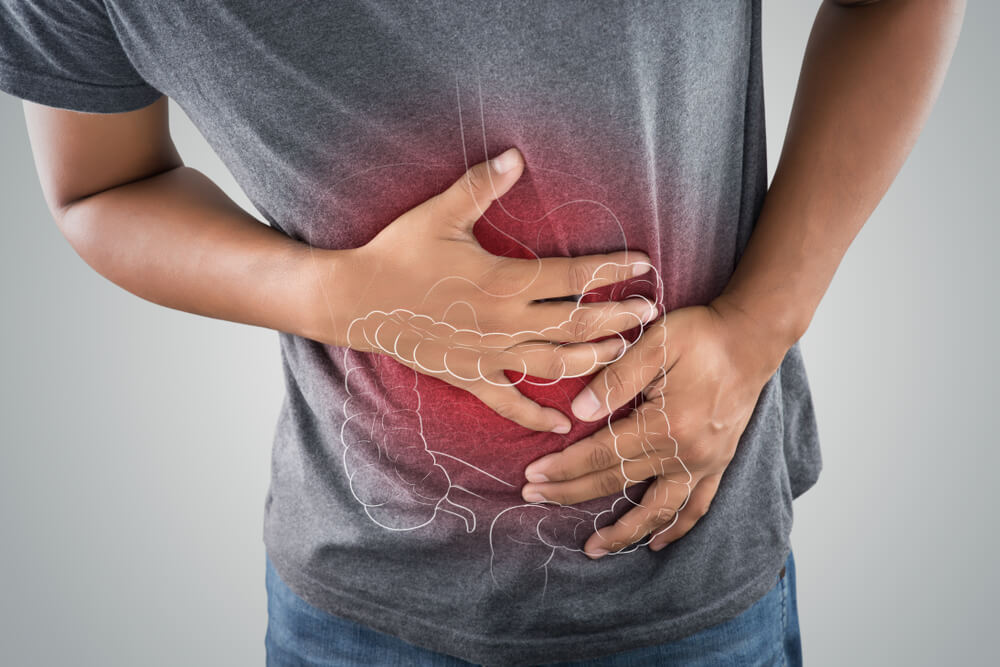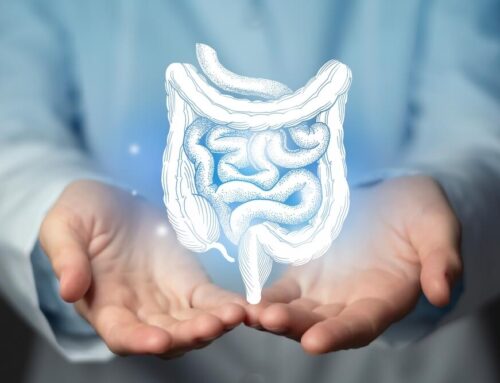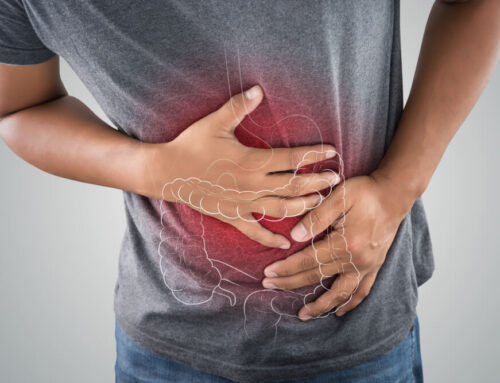The correlation between diet and health is undeniable. What we consume not only affects our general well-being but directly influences the probability of developing diseases, including colon cancer. Nutrition plays an instrumental role in maintaining colon health. However, certain types of food, often referred to as “cancer-causing foods,” have been linked to an increased risk of colon cancer.
Today, colon cancer stands as the third most common cancer in the United States, underscoring the urgent need for increased awareness and better understanding of this disease. Statistics reveal that shifts in dietary practices and the proliferation of unhealthy food habits have contributed to the upsurge in colon cancer rates. If you are looking for advice or recommended practices of colon surgery in Palm Beach County make sure you choose the best option for your particular situation.
Medical centers such as Advanced Surgical Physicians offer a variety of practices and patient care approaches when it comes to colon cancer and its connection to your chosen dietary habits.”Cancer-causing foods” are now alarmingly commonplace in our diets – it’s no surprise that the colon cancer figures are staring back at us, demanding neglect no longer.
Awareness of the connection between diet and colon cancer can promote healthier food choices, potentially reducing the risk of this disease. Reducing the intake of cancer-causing foods – such as certain processed food items, high-fat diet options, and recipes marked by hazardous ingredients – could be a significant step towards prevention. Recognizing the impact of these dietary carcinogens is the first step in safeguarding your health and reducing the risk of colon cancer.
Foods Linked to Increased Colon Cancer Risk
Understanding the role of diet in disease outcomes can be complicated as it often involves a myriad of factors including food types, preparation methods, consumption levels, and individual health status. Nevertheless, several types of food have been consistently linked to an increased risk of colon cancer, primarily because they are high in cancer-promoting nutrients, are heavy on unhealthy ingredients, or induce the production of carcinogens in the body. Some of the core culprits include red and processed meats, and alcohol.
Comprehensive Explanation About Red and Processed Meats
Red meat refers to beef, pork and lamb, while processed meats include hot dogs, bacon, sausage, lunch meats, and other products preserved through salting, curing, smoking or with chemical preservatives. The alarm on these cancer-causing foods has been ringing for years. High consumption rates of both red and processed meats have been linked to an increased incidence of colon cancer, given their content of harmful elements and carcinogenic by-products formed during cooking and digestion.
These meats, especially when cooked at high temperatures, produce several cancer-causing compounds such as heterocyclic amines (HCAs) and polycyclic aromatic hydrocarbons (PAHs). Furthermore, processed meats are typically high in sodium nitrate and nitrite preservatives, which can form carcinogenic N-nitroso compounds in the body. The adverse effect of these meats is evident in research, which confirms these unhealthy diet risks and links them directly to the development of colon cancer.
Explanation on Alcohol and Its Potential Dangers
Alcohol is a well-known risk factor for several diseases, including various types of cancer. Chronic heavy drinking, in particular, has been associated with a heightened risk of colon cancer. The carcinogenic effect of alcohol largely arises from its metabolite, acetaldehyde, which can damage DNA, thus causing mutations and promoting tumor growth.
Moreover, alcohol can have indirect effects on colon health by:
- affecting the balance of bacteria in the gut
- increasing the absorption of carcinogenic dietary compounds
- influencing the levels of certain hormones associated with cancer risk,
- exacerbating the potential dangers of other colon cancer triggers.
While moderate alcohol consumption may not pose significant threats, the potential harms escalate with increased intake. Therefore, to reduce the risk of colon cancer and other alcohol-related diseases, it is advisable for individuals to limit their alcohol consumption in keeping with dietary guidelines and to seek the counsel of healthcare professionals.
Dietary Recommendations for Reducing Colon Cancer Risk
While certain food habits and cancer seem to have an unfortunate connection, the good news is that not all foods propel us towards this disease. On the contrary, a good portion of the foods we encounter daily have cancer-fighting properties that can keep colon cancer at bay. The foundation of a colon-healthy diet involves the increased intake of dietary fiber, whole grains, and a generous portion of fruits and vegetables.
Elaboration on the Role of Dietary Fiber and Whole Grains
Dietary fiber, particularly from whole grains, plays a significant role in maintaining colon health. Whole grains such as brown rice, oats, and whole grain bread and cereals, are packed with fiber, which aids in maintaining a healthy digestive system and helps prevent colon cancer. When we consume dietary fiber, it absorbs water and adds bulk to our diet, facilitating regular bowel movements and helping to eliminate carcinogenic food items from our bodies more efficiently.
The fermentation of fiber in the large intestine also results in the production of short-chain fatty acids that have anti-cancer properties, providing another layer of protection against colon cancer. Furthermore, whole grains are an excellent source of various vitamins, minerals, and antioxidants that can potentially mitigate the adverse effects of other harmful food ingredients.
Therefore, incorporating whole grains into our daily meals is a vital component of an effective colon cancer diet.
Overview About the Impact of Fruit and Vegetable Consumption
Fruits and vegetables are rich in essential nutrients, antioxidants, and dietary fiber, playing a pivotal role in cancer prevention. They contain various phytochemicals – bioactive compounds that exhibit anti-cancer properties and work synergistically to combat harmful substances otherwise known as dietary cancer provocateurs.
Fruits like berries, apples, and citrus fruits, and vegetables such as broccoli, spinach, and bell peppers, have compounds that can neutralize free radicals, prevent DNA damage, and inhibit the formation of carcinogens. Carotenoids, flavonoids, and other phytochemicals found in these foods also have additional anti-inflammatory and immune-boosting functions that potentially reduce the risk of colon cancer.
Also, the natural fiber from fruits and vegetables adds bulk to the diet, facilitating the elimination of waste and reducing the contact time between the colon and any potential carcinogenic substances. Thus, regular and ample consumption of fruits and vegetables is a primary strategy in minimizing the risk associated with cancer-causing foods and maintaining optimal colon health.
Importance of Lifestyle Changes Alongside Diet Modifications
While diet is a crucial factor in reducing colon cancer risk, it’s not the only determinant. Various lifestyle factors, including physical activity, regular screenings, and avoidance of harmful substances like tobacco, play a significant role in maintaining colon health. Here again, the unhealthy diet risks could be further minimized when combined with favorable lifestyle habits. This comprehensive wellness approach is the cornerstone to combating and rejecting colon cancer triggers.
Explanation of Physical Activity’s Role in Maintaining Colon Health
Regular physical activity enhances overall health and, importantly, appears to reduce the risk of colon cancer. Exercise aids digestive health by promoting regular bowel movements and reducing the time potentially carcinogenic food items spend in the digestive tract. Additionally, physical activity helps to maintain a healthy body weight, which is linked to a lower risk of colon cancer.
Regular exercise also reduces chronic inflammation and helps control levels of certain hormones, like insulin, that have been linked to cancer development and progression. Therefore, an active lifestyle, when paired with a balanced, nutrient-rich colon cancer diet, can serve as a formidable defense against this disease.
Discussion on the Significance of Regular Screenings
Colon cancer often begins as small, noncancerous clumps of cells (polyps) that over time can become colon cancers. Regular screening tests can help prevent colon cancer by detecting these polyps for removal before they become cancerous. They can also detect colon cancer in its early stages when treatment is more likely to be successful.
The American Cancer Society recommends that men and women at average risk start regular screenings at age 45. However, individuals with a personal or family history of polyps or colon cancer, or who have certain underlying conditions that increase their risk, might need to start screening before age 45 and more frequently. Your healthcare provider can help you determine the best screening strategy based on your personal risk.
Conclusively, understanding that colon health is not tied to just what we eat, but also how we live, illuminates the path to preventing colon cancer. A combination of a healthy diet low in cancer-causing foods and high in fiber, fruits, and vegetables, regular exercise, and staying consistent with screening appointments armors us against this life-threatening disease.
Healthier Lives Begin with Conscious Choices
The link between our diet and colon cancer is a stark yet controllable reality. Research unequivocally points to the lethal thread connecting the frequent ingestion of carcinogenic food items, such as processed foods and red meats, and colon cancer. However, awareness is the first step towards victory. Having uncovered the veil on colon cancer triggers, one can consciously steer clear from dietary cancer provocateurs and redirect their food habits towards a healthier path.
We have also marked out the allies in our fight against this disease: the fiber-rich whole grains, and vibrant fruits and vegetables. Laden with cancer-fighting nutrients and a host of other health benefits, these foods should be celebrated and strategically included in our everyday meals. Alongside this, we must pay attention to the implications of our lifestyle choices on colon cancer, be it the level of physical activity we engage in, or the commitment to regular screenings.
Such knowledge, however simple, shouldn’t be just known; it should translate to a tangible shift in our daily practices. The power lies within each of us to affect this change – to swap out those unhealthy diet risks for healthier alternatives and to cultivate a lifestyle that profoundly reveres health. Embracing these principles and making them a mainstay of our lives is our employable strategy against colon cancer.
Let’s not overlook the role each meal plays in our overall health; let’s make every bite count. Our dietary choices can either nourish us or take us down the menacing road of disease, such as colon cancer. The initial steps may seem overwhelming, but the journey towards good health, invariably, begins with the first step.
Do not forget, it is never too late to adopt healthier eating habits. As we acknowledge these, as we understand that food is indeed medicine, we can begin to transform our health, one meal at a time. After all, when it pertains to our health, every step forward, however small, is a victory. Our team is there to lead you through that path, so call us today and schedule a consultation. We are a phone call away!







